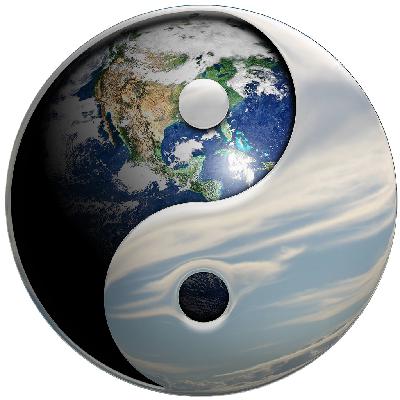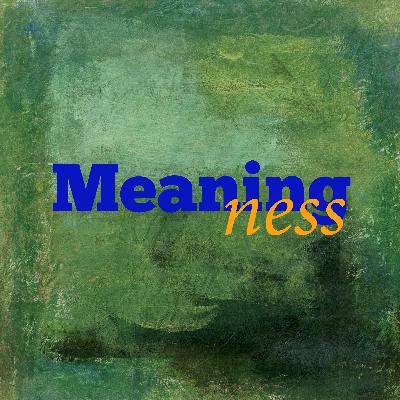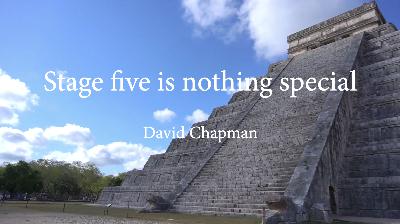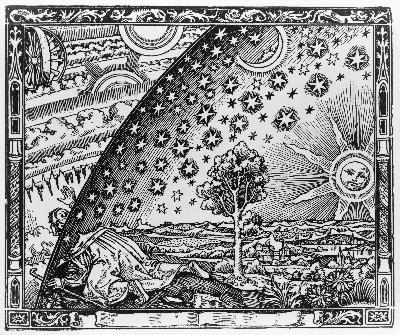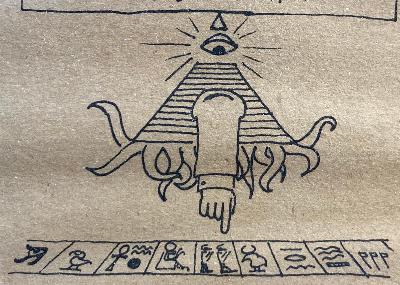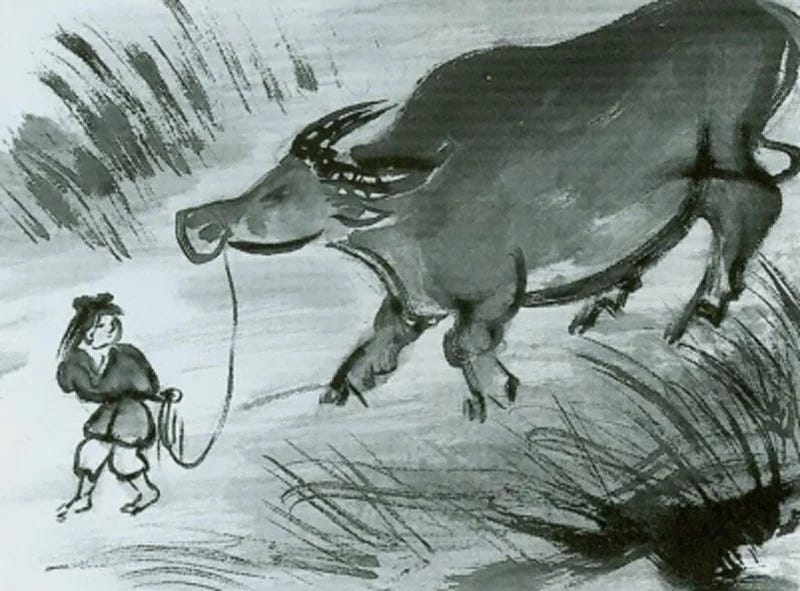Myth, adult developmental stages, and entrepreneurship
Description
How thoughts work — goddesses at the origin of philosophy — inspiration in adult development — how myths transform society and culture — Spock and Jimi Hendrix — entrepreneurship, purpose, and value
Video from a monthly live Ask-Me-Anything!
How to participate next time, and more info: https://meaningness.substack.com/p/myth-adult-development-entrepreneurship
Unexpected connections
Everything is connected to everything else; and this is very inconvenient! It’d be much tidier if everything would stay in its own box. But, it’s also fascinating and wonderful how things connect. And we’re going to see ways in which my recent posts, and the questions, and my random rambling are going to tie together in ways that I find unexpected, and really kind of cool.
My “bad brain” joke, and the nature of mind
I made a series of jokes about my “bad brain.” My bad brain decides what I’m going to write, because it gets really excited about something or other and says, we’re writing that! And I say no, that’s dumb, and there’s no good reason to write that, I’ve got too many things to write already; and my brain says, nope, nope, we’re writing that! And I’m like, yeah, you write that! But usually my brain doesn’t, so_ I_ have to write it, and this is really quite annoying!
This is a joke. And, I got some feedback from people who I think didn’t quite get the joke. And I was talking with my spouse Charlie Awbery, who is a meditation teacher, and they said, “Well, this is a joke which you get if you meditate; and if you don’t meditate, maybe you don’t see the point of the joke.”
The point of the joke is: when you start meditating, you have the idea that you’re gonna, like, clear your mind and concentrate, and all of the stupid mental junk will go away. And the first thing you discover is, you can’t do that. You try to do that, and all these thoughts keep happening.
The traditional phrase is “monkey mind.” It’s like, you know, a mischievous monkey that is jumping around, and getting into trouble and turning everything upside down, and pulling things out of where they’re supposed to be, and throwing around, and creeping up behind you and pinching you, or biting you, and it’s quite painful. Your thoughts are like that.
You think, okay, there’s something wrong with me. I had no idea that this is happening in my mind. You start to realize in ordinary life that this is happening too. As you meditate more, you realize that this is just what minds do. It’s the natural function of mind, and as you let that be, the monkey calms down. Some of the time.
But thoughts keep arising. The type of meditation that I do, that my spouse Charlie teaches, it’s a non-goal to make that stop. Because the goal is the natural state of mind.
So, when I complain about having a bad brain, it’s, it’s this monkey mind phenomenon. And this is just funny because this is how minds are. This is everybody’s mind.
Some people misunderstood me as saying that there’s something defective about my brain, and that’s probably true, but it’s not what I was joking about. I wasn’t complaining that I have some kind of mental health problem or something. It’s just, I get excited about things. And then I’m moved to write about them.
And this sense of there’s me and there’s my brain— is a kind of joking metaphor for this sense that we’re not some unified individual with control over our own thoughts. We don’t have control over our own thoughts for the most part. That’s not how it works.
Philosophy is bad because it pollutes our thought soup
And this is a main part of why philosophy is bad. Philosophy is bad because you think thoughts that you think are your own thoughts, and you think you’re in charge of those thoughts, and you’re figuring things out.
But the reality is, our thoughts are almost entirely drawn from the soup in our culture of thoughts that people have had before. And all we’re doing is repeating them. We think we’re thinking thoughts, but actually the thoughts are just happening, and they’re ones that we’ve picked up.
And the ones that are about meaning, purpose, value, ethics, the traditional subjects of philosophy: these are thoughts that somebody had twenty-five hundred years ago, who was completely out to lunch and wrong about everything, but they slipped into the culture, and they’ve been repeated, for millennia, with slight variations; and then they come up in awareness, and we think they’re our thoughts.
And we’re thinking bad thoughts that don’t actually make any sense, and we don’t notice because we don’t see how thinking works!
Encouraging community
Right, so I’ve been writing about why philosophy is bad, and I wrote that I have very mixed feelings about this, because this is one of my bad brain’s projects, and I’m not sure it’s actually a good thing to be doing, and I’m not sure if I’m going to continue.
But it drew a lot of attention and comments, which suggests that it may be an exciting topic that is worth pursuing, or it may just be that it’s rage bait, or some kind of bait that is drawing people, in a way that’s not healthy, and I should drop it like a hot potato. I’m not sure about that still.
However, one thing that’s exciting for me is seeing how, uh— Used to be, the comments on my posts were addressed only to me, but there’s increasingly conversation among people with each other, on my posts. And that seems like the beginnings of an emerging community around the kinds of things I write about. And that’s something I want to encourage! I decided that would be a project for this year, at the beginning of the year when I was doing my annual planning. And I mentioned in one of my monthly roundup posts that I was going to do this, and several people said No no, that trades off against time spent writing the real stuff, and we want you to write the real stuff. Not create community, because who cares about that!
Well, I do care about it. I hope you’ll come to care about it too. So I think it is worth putting some of my time into, even though it is really time-consuming. I spent essentially all day yesterday answering comments on the most recent philosophy post.
How myth got mutated into metaphysics
About that post: there is something very weird in the middle of it, when suddenly there’s all these dramatic illustrations, and weird bits of text that don’t seem to connect, and what is that about? I find this very interesting. There’s something emerging there, that I haven’t completely got a handle on yet. It’s starting to assemble itself, and this is the sort of impersonal nature of thinking. I don’t— I don’t do the stuff that supposedly I do. It just arises in mind. And, you know, I can, sometimes it’s a lot of work, sometimes I can guide it some, but primarily it’s an autonomous process that is impersonal. I’ll come back to this, because this really relates to the questions from both Vinod and Nick.
If you follow the links in that weird bit with the dramatic irrelevant illustrations, you’ll get some hints about what’s going on there. This is about myth, and mythopoesis, and the emergence of metaphysics out of myth.
I’m gonna say just a little bit about this. This is going to come out, I think, as a thing. It’s now a bunch of semi-connected thoughts, but I’m going to give you a through-line, I think, that is the outline of the story.
So in the beginning, there was Tiamat. Before the heavens and the Earth, there was Tiamat who was the waters of the ocean, and she was chaos.
This is in the Mesopotamian myth cycle called the Enuma Elish. The word that’s translated “chaos” in the Enuma Elish, and the Greek word chaos, do not mean what “chaos” means in English. It means unformed.
So the world was unformed, and Tiamat mated with Apsu, who was the fresh water of the rivers, and she brought forth the heavens and the earth, and the trees and the greenery, the animals, and monsters. She is the mother of everything. She is also the devourer and the destroyer of everything.
Hesiod. He’s not counted as a philosopher, he’s kind of a proto-philosopher. He systematized the Greek myths, and he addressed them to questions that subsequently became called the philosophical questions.
Uh, G-M-L comments, “This sounds a bit Discordian.” Yes! There’s a very clear connection there.
Hesiod’s myths are partly a retelling of the Enuma Elish— I think, and it’s not just my opinion.
Thales counts as the first philosopher, for some reason. His main doctrine was that everything is water. Tiamat is water, and the origin of every





